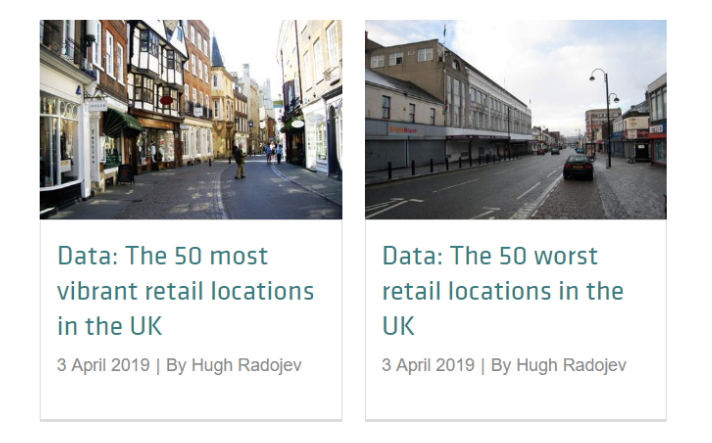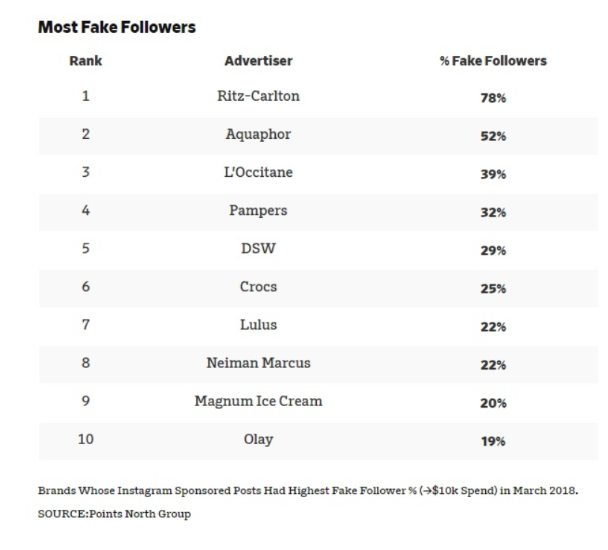With the cost of rent, wages and pensions all on the up and consumer spending remaining stagnant, retailers are feeling the squeeze.
However despite regular news headlines reporting store closures, it’s not all doom and gloom for retailers – a number of retailers are bucking the trend and seeing profits soar. In our latest blog post we take a closer look at the strategies that these retailers are implementing and dissect their recipe for success.
-
Streamlining: A move toward fewer, experience-driven stores
The days of retailers having multiple stores within the same town or high street are long gone. Equally, consumers are more likely to travel to benefit from a better all-round shopping experience. This means smaller high-streets that have suffered from minimal long-term investment and become ‘run-down’ have been shunned by consumers in favour of modern malls and affluent high streets that are considered to be shopping and leisure ‘destinations’. Two recent articles by Retail Week illustrate this point well:

Although store closures are painted by the media as a doomsday scenario for retailers, it is actually a necessary part of adapting to this changing high-street landscape. With a smaller portfolios of stores, retailers are able to invest more in those stores to deliver a positive experience to customers.
-
Re-inventing Retail: Personalisation, expertise, locality & scarcity
The way that consumers shop continues to evolve and so stores need to keep adapting to meet these changes in consumer needs and behaviour.
Three of these key trends are personalisation, expertise, locality & scarcity.
Personalisation
Consumers are increasingly looking to express their personality and be treated individually using personal edits or by receiving a personal service. Online, retailers such as ASOS are delivering this by using an interactive ‘style assistant’, which suggests both sizes and looks based on browsing and previous buying behaviour.
Expertise
Often, a key driver that motivates consumers to make the trip to a store location is to seek out expertise. Tech retailers like Apple and Currys PC World have benefitted from this for some time, but more traditional retailers like Waterstones are also delivering the equivalent of this by focusing on expertise as an in-store experience. Waterstones managing director James Daunt has said that the retailer relies on the expertise of booksellers in order to remain successful.
Locality & Scarcity
Motivation to buy is important. Consumers like to feel as though they are getting something in-store that they may not be able to get online. This has fuelled the rise in in-store sales, with more than half of all clothing sold in retail stores on-sale just before Christmas 2018 in order to drive the footfall needed in-store. However, many retailers are noting that scarcity and urgency to buy can be delivered in-store in another way – by varying the stock carried between retail locations and making stock specific and relevant to local customers.
Nike brought this concept to life last year when it opened Nike at Melrose in LA, which collates data from local Nike+ users to inform in-store stock decisions and also stocks items that are unique to that location and that cannot be bought online or elsewhere.
Data-informed marketing
Over the last few years, retailers have been streamlining the stores and staff numbers, but have largely continued to splurge on marketing, with a lot of budget wasted on activities that are not contributing to either brand recognition or the bottom line. For example, a recent study by analytics company Points North Group reported that the Ritz-Carlton had the highest proportion of fake followers among sponsored posts compared to other top brands:

In essence, this means that 78% of the Ritz-Carlton’s advertising budget spent sponsoring those posts was completely wasted.
This is why it’s time for top brands to take their marketing budgets as seriously as they take their staff, overhead and supply chain budgets and ensure that every marketing decision is informed by data.
If you need help transforming your in-store retail experience into something memorable or streamlining your in-store and online marketing efforts, then get in touch with our team today. We specialise in retail displays, personalised, multi-channel marketing and design and can come up with a strategic approach that can transform your retail results.
Comment